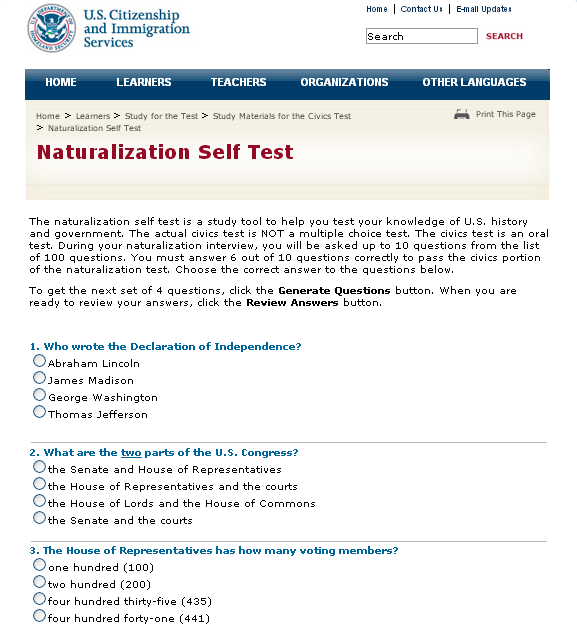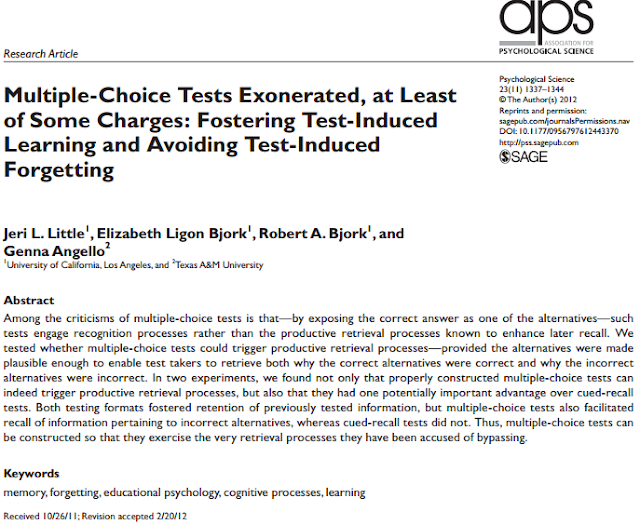Multiple-Choice Tests: Are These Really Bad?
Some people would be quite quick to judge that multiple-choice tests are poor assessment tools. Perhaps, a lot more would not be inclined to suggest that multiple-choice tests can in fact serve as effective learning tools. Yet, the United States Citizenship and Immigration Services employs multiple-choice questions to help people prepare for the Citizenship Civics Test.
 |
| Downloaded from USCIS Practice Exercises |
A recent article published in the journal Psychological Science addresses the question of whether multiple-choice tests are helpful in learning:
 |
| Downloaded from http://pss.sagepub.com/content/23/11/1337.full.pdf+html |
"The present work demonstrates that properly constructed multiple-choice practice tests can be important learning events for students. Achieving “proper construction” of such tests — which requires that incorrect alternatives be plausible, but not so plausible that they are unfair — is, however, a challenge. As any teacher who has used multiple-choice tests can testify, writing good multiple-choice items is very hard work, whereas writing poor ones is relatively easy. Thus, when people accuse multiple-choice tests of being bad tests, that accusation, statistically, has some truth to it. We argue, however, that the statistical accuracy of such accusations has more to do with human nature than with the multiple-choice format per se.
Comments
Post a Comment